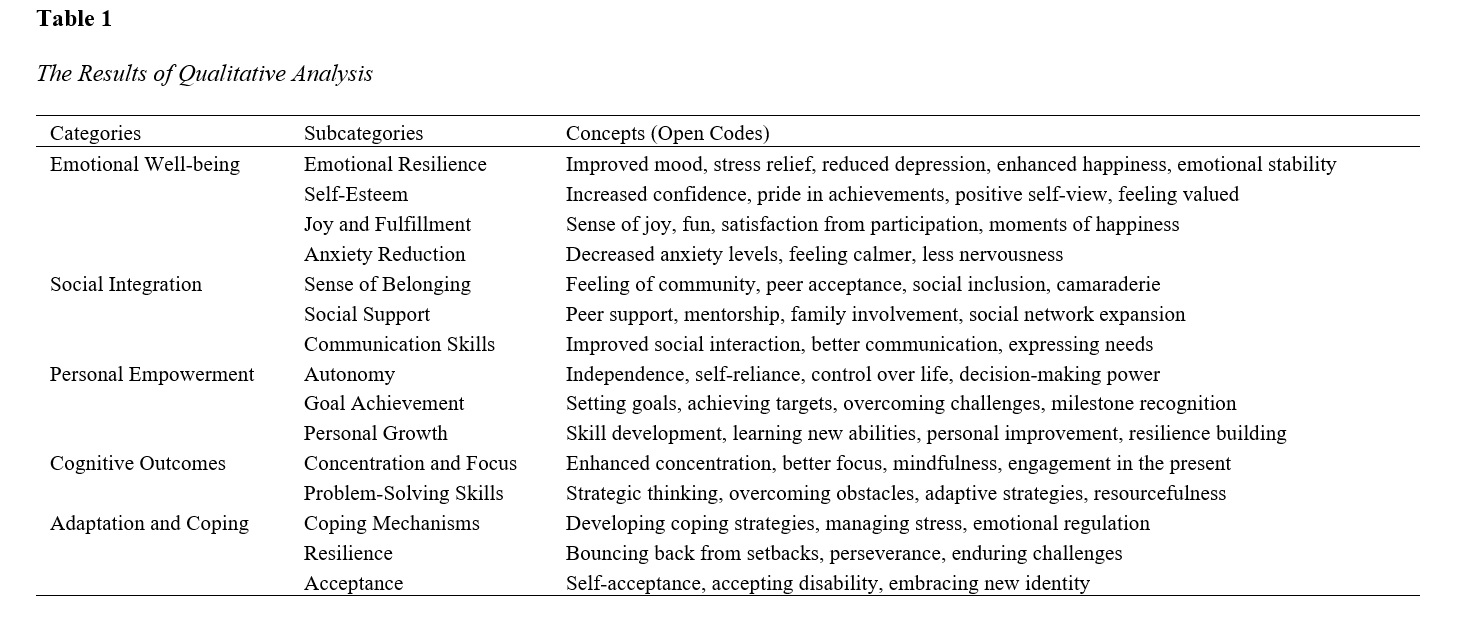Adaptive Sports and Mental Health: Exploring the Psychological Outcomes of Engaging in Sports for Individuals with Disabilities
Keywords:
Adaptive Sports, Mental Health, Psychological Outcomes, Individuals with DisabilitiesAbstract
Objective: The objective of this study was to explore the psychological outcomes of engaging in adaptive sports for individuals with disabilities.
Methods and Materials: This qualitative study utilized semi-structured interviews with 23 participants ranged from 18 to 55 years, with a mean age of 32 years who are actively involved in adaptive sports. Participants were selected through a purposive sampling technique to ensure a diverse representation in terms of age, gender, type of disability, and sport. Data collection focused on participants' personal experiences with adaptive sports, with an emphasis on psychological impacts. Theoretical saturation was achieved to ensure comprehensive coverage of the experiences. Data were analyzed using thematic analysis to identify main themes and categories within the psychological outcomes of adaptive sports participation.
Findings: The analysis revealed five main themes associated with the psychological outcomes of participating in adaptive sports: Emotional Well-being, Social Integration, Personal Empowerment, Cognitive Outcomes, and Adaptation and Coping. Under Emotional Well-being, participants reported improvements in emotional resilience, self-esteem, joy and fulfillment, and anxiety reduction. Social Integration was characterized by a strengthened sense of belonging, enhanced social support, and improved communication skills. Personal Empowerment was evident through increased autonomy, goal achievement, and personal growth. Cognitive Outcomes included better concentration and focus, as well as enhanced problem-solving skills. Lastly, Adaptation and Coping were observed through the development of effective coping mechanisms, increased resilience, and acceptance of disability.
Conclusion: The study concludes that adaptive sports play a significant role in enhancing the psychological well-being of individuals with disabilities. Participation in adaptive sports leads to improvements in emotional well-being, social integration, personal empowerment, cognitive functions, and adaptive coping strategies. These findings underscore the importance of promoting and facilitating access to adaptive sports as a means of supporting the mental health and overall quality of life for individuals with disabilities.
Downloads

Downloads
Additional Files
Published
Issue
Section
License
Copyright (c) 2024 Sefa Bulut, Mehdi Rostami, Jamel Hajji, Sergii Boltivets, Nadereh Saadati (Author); Jiantang Yang (Corresponding Author); Maura McDonnell, Chidinma Chikwe, Erwin A. William (Author)

This work is licensed under a Creative Commons Attribution-NonCommercial 4.0 International License.














